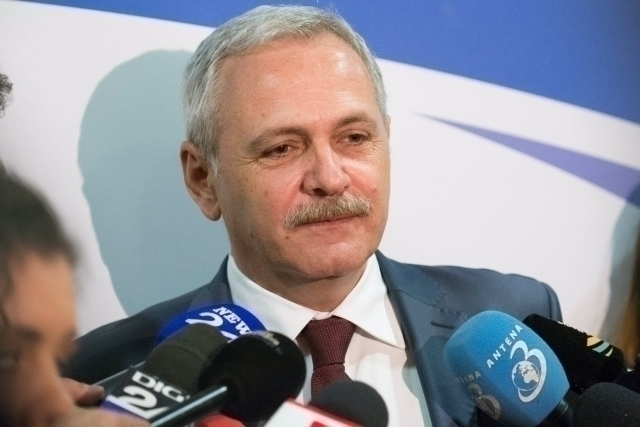Romanian Justice Minister Tudorel Toader has announced they will set a threshold, which he called “reasonable” for the abuse of office to be considered a crime. He has made the announcement after the Constitutional Court said it was up to Parliament to establish the threshold for the damage caused by the abuse of office.
The Constitutional Court thus complied with the request made by Bombonica Prodana, the ex-wife of Liviu Dragnea, the leader of the Social Democratic Party, PSD and president of the Chamber of Deputies. Prosecuted for the abuse of office herself in the file on the employment of certain persons at the Social Welfare Department in the Southern Teleorman County while her husband was president of the County Council, Bombonica Prodana had invoked the unconstitutional character of the respective article in the present Criminal Code.
The judges of the National Anti-Corruption Directorate accuse Liviu Dragnea of incitement to intellectual deceit because he allegedly made the Department officials fictitiously hire two persons, members of the PSD county organization, who were paid with public money though they did a job exclusively for the party.
Justice Minister Tudorel Toader explains.
Tudorel Toader: “First, we are waiting for the Constitutional Court’s ruling, its whole motivation, not only for its press release and then we will hold debates with law experts and civil society to see what could be a reasonable threshold bringing the provisions of the Criminal Code in line with the Constitutional Court’s ruling, because there is talk about the obligation of the primary or delegate law maker.”
On behalf of the magistrates, the president of the High Court of Cassation and Justice, Cristina Tarcea believes that the threshold will have to be established depending on the judges’ estimates on the social danger posed by the respective crime. She makes it clear:
Cristina Tarcea: “I think it is too early to hold discussions on the level of the fraud because if the Constitutional Court considered a low social danger posed by the crime, for sure the threshold must be relatively low, but if the judges had in mind other aspects, the threshold can depend on what the Constitutional Court judges had in mind.”
In exchange, the Public Ministry firmly stands against the introduction of a threshold. The general prosecutor, Augustin Lazar, has made it clear that he will not give up that viewpoint, which he has already made known.
The Ministry’s announcement comes against the backdrop of acute suspicions in society regarding the rulers’ wish to curtail the anti-corruption campaign, which has so far triggered the imprisonment or prosecution of numberless formerly intangible politicians.
Early this year, the attempt of former justice minister, Florin Iordache, to amend the criminal codes by an emergency ordinance made hundreds of thousands of people take to the streets in the biggest post-communist collective protest in Romania. Eventually, the Government gave up the ordinance and Iordache handed in his resignation.

